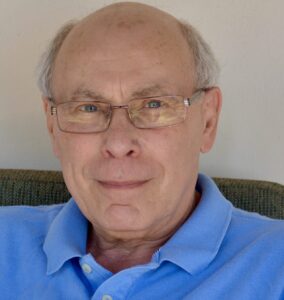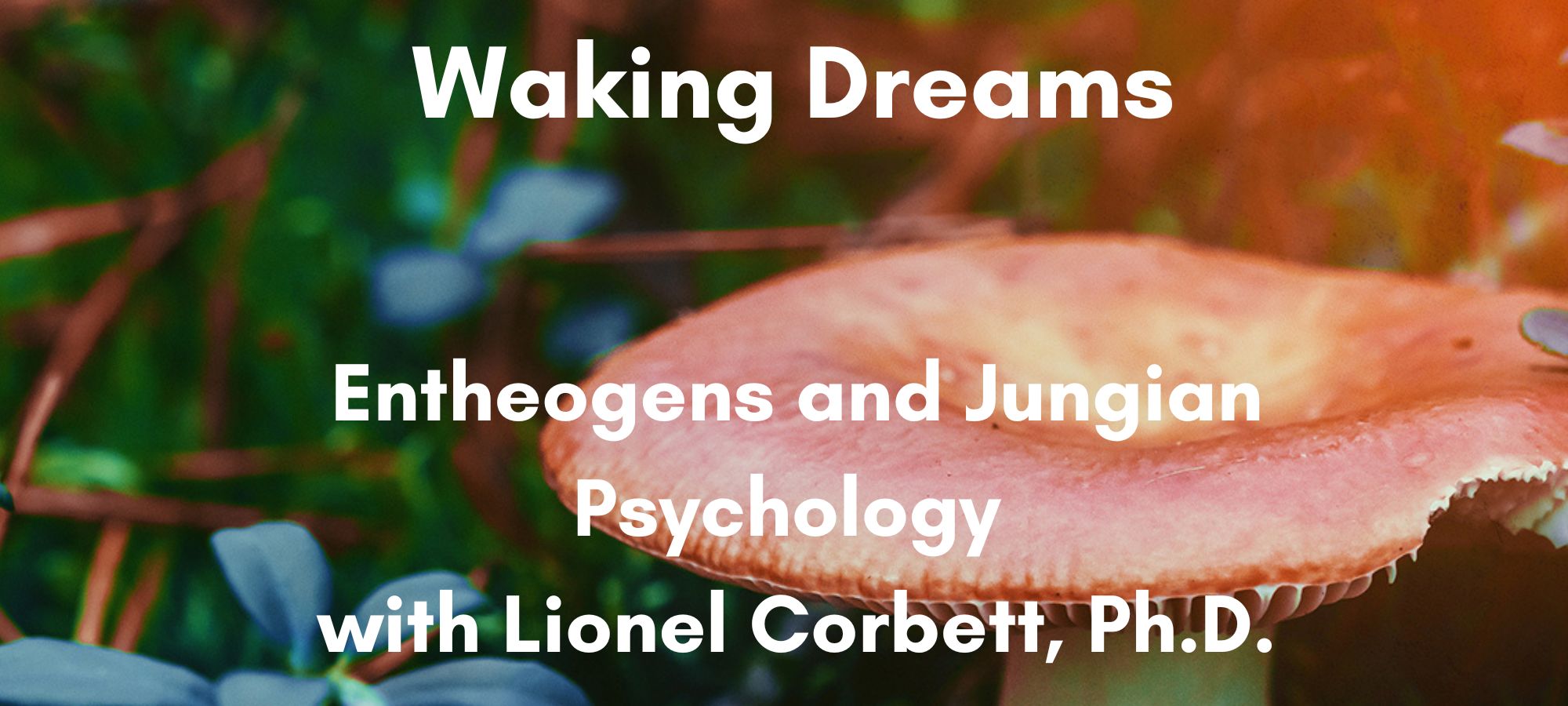Lionel Corbett, Ph.d., core faculty at Pacifica, will be presenting at the “Individuation and Psychedelics Conversations with Jungian Analysts,” a joint IAAP and Pacifica Graduate Institute Conference, Dec 15-17, 2023, which will feature twenty discussants. I’m delighted to speak with him about his work and the conference.
Angela: You will be on the first panel of the conference, speaking about the current state of psychedelics. We’ve seen a trend in psilocybin being decriminalized in some states in the U.S., but there are many other plants that are not yet legal in the U.S. Why is now the moment that something formerly regarded by mainstream society as a subversive past-time for thrill-seekers is coming to light as a therapeutic tool that may well have a place in analytical work? What has changed in our perception or understanding of these substances that give credence to this possibility?
Lionel: The benefits of these compounds have gradually been realized in a way that it is no longer possible to deny. Initially the mainstream establishment said they had no therapeutic benefit at all, which is isn’t true, as we’ve seen from recent studies. The pressure from the public, who’ve been ignoring the official prohibition, became too great. And some very good studies show that they do have benefits. The problems is that these compounds were misused in the past, and when used carelessly they can be very dangerous. In an unprepared person, without containment, these things can be really dangerous. But now we understand what’s called set and setting and integration. We’re learning how to use these compounds safely. You know how the telescope and the microscope revolutionized science? Those instruments allow us to see things we can’t with our ordinary senses, and psychedelics are analogous. They are like an instrument for studying the unconscious. We’re just beginning to know how to use them, really. We don’t know which compounds to use, in which situations, or how. We’re at an early stage and that’s what the conference is all about.
Angela: In your paper, “The therapeutic use of psychedelic agents: An overview,” you prefer the term “entheogen” over “psychedelics, with the meaning of “God-creating.” You go on to say that “These plants induce sacred experience, transcendent levels of meaning, and access to otherwise inaccessible levels of truth if used correctly.” It sounds like you are describing a key that opens our access to something deeper and greater than what we can access through our own efforts or even therapy. What is at the heart of this? Why would, for instance, alcohol or some other disruptant to the human system not produce the same effect?
Lionel: Very roughly, there were two schools of thoughts about these compounds. One is that they screw up your brain chemistry and give you strange experiences. There are other people, of whom I am one, who think that these compounds open the door to an authentic spiritual experience. That is why they’re referred in some cultures as the “plants of the gods.” They give us access to the spiritual dimension in a way that is hard to reach.
In the 60s, when a lot of us began, the churches missed an opportunity. There was Walter Pahnke [a graduate student in theology at Harvard Divinity School, working under the aegis of Timothy Leary and the Harvard Psilocybin Project], who took a group of Harvard students and gave half psilocybin and the other group got Vitamin B-3, which has a mild flushing affect, and he sent them to a Good Friday service in the chapel. A high percentage of those who got the psychedelic compound had important spiritual experiences that the other group did not. But the churches never really picked up on that research. People are very invested in the ego and these experiences take you beyond the ego, and can’t be explained by traditional religion. The churches were reluctant to admit these things could produce an authentic spiritual experience.
As for alcohol, it’s a suppressant. Psychedelics have a specific effect on the default mode network. They reduce activity in the part of the brain that is normally associate with the ego. We have a barrier between the empirical ego and the rest of the psyche. There’s a thing called the suppression barrier. We don’t have access to it any other way, that’s why it’s called the unconscious. The only other things we have are dreams, and psychedelics are like waking dreams.
Angela: What you’re describing seems to be access to our own psyche at its deepest levels, but “far beyond its personal levels.” What are the impersonal levels of the psyche? Why are we obscure to ourselves and how do entheogen’s cast light on something too great for us to understand on our own?
Lionel: You have to move into Jungian theory to answer. Jung postulates there is the collective unconscious, it is a level of the psyche that is deeper than the individual unconscious, that all people participate in. You can have access to that in dreams, the archetypal level of the psyche. When that level emerges into consciousness, such as in a dream or a psychedelic experience, you have experiences you’re unfamiliar with, because you’re tapping into this archetypal level or the autonomous psyche, because we can’t control it. It just does what it does. You can access this sometimes in dreams, in psychedelic experiences, and holotropic breathwork. You can have a spontaneous mystical experience, where this level pops up. But we can’t control access to it.
Very often, a mystical experience will address some issue that the person is dealing with in his or her life. They’re not random experiences. They seem to be tailored to the person’s psychology. They’re called numinous experiences, and Jung wrote that these experiences have a healing effect, they can make one feel better about all kinds of complexes. He was talking about numinous dreams, but I think the same is true for psychedelic experiences. Of course, these kinds of experiences can also make you psychotic. So there are some people who should not use these. There are some contraindications.
Angela: You note that although Jung felt entheogens “confirmed his discovery of the collective unconscious,” he did not approve of them as a therapeutic tool, for the “difficulty of integrating the unconscious contents these agents release.” How do you see this assertion? For those who take psychedelics in a casual way, there is the common term of the “bad trip.” Would that be what Jung was perhaps referring to with difficulty integrating? What framework needs to be in place for people seeking entheogens as part of their healing or therapeutic process? Do you foresee the use of entheogens as something that makes it into psychologists’ offices or is this something to be pursued outside of the context of the therapist-patient context?
Lionel: That’s what our conference is about. There are some therapists willing to sit with a person using these compounds. But these sessions might go on for hours. A more reasonable approach is to find another safe setting and then bring the experience into the therapeutic setting. But we don’t know. This is what we’re going to talk about during the conference. You have to have adequate containment, you need someone you trust to be with you, and the setting has to be relaxed and safe.
We can use Jungian theory to integrate the experience but Jung himself didn’t like the use of these, like you’re trying to force the hand of the unconscious to reveal itself rather than waiting for it to reveal itself. He felt it was a materialistic approach to spiritualistic matters. The only one he tried was mescaline, but I don’t know what kind of experience he had. In the Jungian oral tradition, it is said he thought they were too artificial, and that you may have an experience with a psychedelic that is beyond your capacity to integrate. But Jung’s work is essential to understand the experience.
Angela: What do you most look forward to in the upcoming conference and what effect do you hope it has on the direction of depth psychology in particular?
Lionel: I’m looking forward to clarifying these questions we’ve talked about! I hope we come out of it with a clearer idea of when and how to use these compounds in Jungian work. At the moment, it’s not clear at all. I don’t know who or when or the indications, so I want to learn more. That’s what I’m hoping to get out of it. We’re at an early stage. Galileo has just discovered his telescope. We’re just beginning.
Angela: Thank you so much for your time, and I look forward to the conference!
To join us for the “Individuation and Psychedelics Conversations with Jungian Analysts,” a joint IAAP and Pacifica Graduate Institute Conference, Dec 15-17, 2023, learn more here. All are welcome!

Dr. Lionel Corbett, Ph.D., trained in medicine and psychiatry in England and as a Jungian Analyst at the C.G. Jung Institute of Chicago. He is a professor of depth psychology at Pacifica Graduate Institute, in Santa Barbara, California. He is the author of seven books: Psyche and the sacred: The religious function of the psyche; The sacred cauldron: Psychotherapy as a spiritual practice; The soul in anguish: Psychotherapeutic approaches to suffering; Understanding Evil: A guide for psychotherapists, and The God-image: From antiquity to Jung. His latest book, Jung’s Philosophical Claims: A Comparative Study, is in press. He is the co-editor of four volumes of collected papers: Psyche’s Stories; Depth psychology, meditations in the field; Psychology at the Threshold; and Jung and Aging.

Angela Borda is a writer for Pacifica Graduate Institute, as well as the editor of the Santa Barbara Literary Journal. Her work has been published in Food & Home, Peregrine, Hurricanes & Swan Songs, Delirium Corridor, Still Arts Quarterly, Danse Macabre, and is forthcoming in The Tertiary Lodger and Running Wild Anthology of Stories, Vol. 5.


